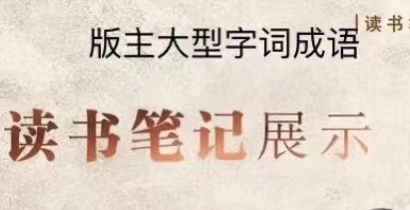act /ækt/ I.vi.& vt. 1.做事,行动:Think before you act.三思而后行。2.演戏,扮演:She acts well. 她演技很好。Who’s acting (the part of) Hamlet? 谁扮演哈姆雷特? 3. 起作用: By gravitation the sun and the planets act and react upon one another. 由于引力,太阳与行星互相作用。4. 用于习语或短语动词 act on 按某人说的做:He gave me good advice, but I didn’t act on it. 他给了我很好的建议,但我没有按照建议去办。act as 担任,充当: He acted as chairman in my absence. 我不在时他担任主席。act out 表演,表达思想:The children were told to act out a verse of their favourite poem. 孩子们被要求表演他们所喜欢的诗句。act up 失灵;表现不好:My car has been acting up again - I must get someone to have a look at it. 我的车又不行了,我得找个人瞧瞧。‖II. n. 1.[u]行为,行动:It is my own act. Why do you bring my mother in? 那是我自己干的事,你把我母亲牵扯进来干什么? in the act of 正在干某件坏事或错事: I caught him in the act of opening one of my letters.他正在拆开我的一封信的时候让我逮个正着。2.[c]法令,条例:pass an act 通过一个法案 3.[c](戏的)一幕:a one-act play 独幕剧;a play in 5 acts 五幕剧
action /ˈækʃən/ n. 1.行动,行为(泛指行动时[u],表示具体的行动时[c]):take action 采取行动;put into action 付诸实施Actions speak louder than words. 行动比语言更有效。The government is taking strong action on refugees. 政府正在对难民采取强硬措施。2.[u] 作用:The action of this crank (曲柄) turns the wheel. 这个曲柄的作用是驱动轮子。









